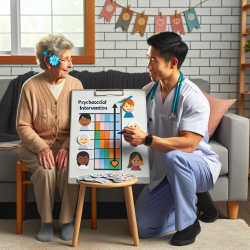Introduction
As practitioners dedicated to enhancing the lives of children through data-driven decisions, it's crucial to understand the challenges and opportunities presented by Community-Based Participatory Research (CBPR). A recent study titled Institutional review board challenges related to community-based participatory research on human exposure to environmental toxins: A case study offers valuable insights into navigating the complexities of Institutional Review Board (IRB) processes in CBPR projects.
Understanding the Challenges
The study highlights several challenges faced by researchers in obtaining IRB approval for CBPR projects. These challenges often stem from IRBs' unfamiliarity with the CBPR approach, which emphasizes community involvement and the dissemination of individual research results to participants. This unfamiliarity can lead to significant delays and hinder the research process, ultimately affecting the outcomes for the communities involved.
Key Findings and Recommendations
According to the research, IRBs often resist overseeing community partners and are cautious about ongoing researcher-participant interactions. This resistance can contradict the principles of beneficence and justice, which are fundamental to CBPR. To overcome these challenges, the study recommends:
- Educating IRB members about the objectives and methods of CBPR.
- Developing clear guidelines that respect the unique qualities of CBPR.
- Encouraging collaboration between researchers, community partners, and IRBs.
Implementing the Recommendations
For practitioners in speech-language pathology, these recommendations can be instrumental in conducting research that directly benefits children and their communities. By fostering a collaborative environment and ensuring that research findings are shared with participants, practitioners can enhance the impact of their work and contribute to the advancement of ethical research practices.
Encouraging Further Research
While the study provides a comprehensive overview of the challenges and solutions related to IRB processes in CBPR, it also highlights the need for further research. Practitioners are encouraged to explore additional studies that examine the intersection of CBPR and speech-language pathology, focusing on how these methodologies can improve outcomes for children.
Conclusion
By understanding and addressing the challenges associated with IRB processes in CBPR, practitioners can ensure that their research is ethical, effective, and beneficial to the communities they serve. Embracing the principles of CBPR not only enhances research outcomes but also empowers communities to take an active role in the research process.
To read the original research paper, please follow this link: Institutional review board challenges related to community-based participatory research on human exposure to environmental toxins: A case study.










